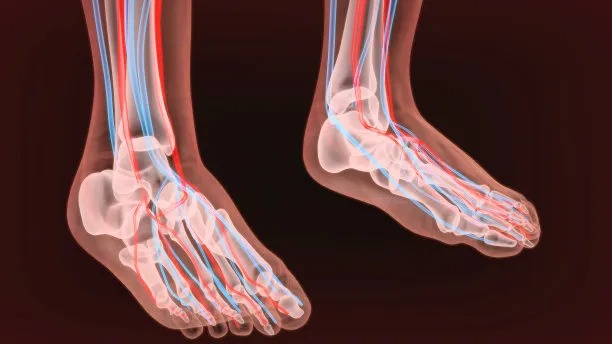Expanding Access to Cross-border Cardiovascular Disease Treatment
original:health91192025-02-19 11:55:00
Summary: Expanding Access to Cross-border Cardiovascular Disease Treatment is essential for improving global healthcare equity. By enhancing international collaboration, sharing resources, and lever
Summary: Expanding Access to Cross-border Cardiovascular Disease Treatment is essential for improving global healthcare equity. By enhancing international collaboration, sharing resources, and leveraging technology, patients around the world can benefit from advanced cardiovascular treatment options.
1. International Collaboration

International collaboration plays a crucial role in expanding access to cross-border cardiovascular disease treatment. By promoting partnerships between healthcare institutions in different countries, knowledge sharing and expertise exchange can occur, leading to improved patient outcomes. Additionally, collaboration allows for the standardization of treatment protocols and the establishment of best practices that can be implemented globally.
Furthermore, joint research efforts and clinical trials can be conducted across borders, facilitating the development of innovative treatments and technologies that may not have been possible within a single countrys healthcare system. This collaboration fosters a sense of unity among healthcare professionals worldwide, working towards a common goal of advancing cardiovascular care.
Efforts to streamline regulatory processes and remove barriers to cross-border treatment can also be achieved through international collaboration. By aligning guidelines and standards across countries, patients can access life-saving treatments more efficiently and effectively.
2. Resource Sharing
Resource sharing is essential in expanding access to cross-border cardiovascular disease treatment. By pooling together resources such as medical equipment, medication, and healthcare personnel, countries can better address the needs of patients with cardiovascular conditions. Sharing resources also helps to reduce costs associated with treatment and improve overall efficiency in healthcare delivery.
In addition, telemedicine and teleconsultation services can be utilized to connect healthcare providers across borders, allowing for real-time collaboration and decision-making. This technology enables experts to remotely assess patients, provide consultations, and contribute to treatment planning, ultimately enhancing the quality of care delivered to cardiovascular patients globally.
Moreover, establishing resource-sharing networks and partnerships between healthcare facilities in different countries can help address disparities in access to specialized cardiovascular treatments. By redistributing resources based on patient needs and treatment gaps, more individuals can receive timely and appropriate care for their cardiovascular conditions.
3. Leveraging Technology
Leveraging technology is a key strategy in expanding access to cross-border cardiovascular disease treatment. Advancements in telehealth platforms, digital health records, and remote monitoring devices have revolutionized the way cardiovascular care is delivered and managed across borders. Patients can now receive virtual consultations, transmit vital health data, and access medical expertise from healthcare providers worldwide.
Furthermore, artificial intelligence and machine learning algorithms can be employed to analyze large datasets and identify patterns in cardiovascular diseases, leading to more accurate diagnoses and personalized treatment plans. Telemedicine platforms integrated with AI capabilities can optimize care delivery, improve treatment outcomes, and bridge gaps in access to cardiovascular expertise in underserved regions.
By investing in telehealth infrastructure and digital health solutions, healthcare systems can enhance the efficiency, affordability, and accessibility of cardiovascular services on a global scale. Technology-driven innovations empower patients to actively participate in their care and enable healthcare providers to deliver evidence-based, patient-centered treatments regardless of geographic location.
4. Patient Empowerment
Patient empowerment is a fundamental aspect of expanding access to cross-border cardiovascular disease treatment. Educating patients about their condition, treatment options, and preventive measures empowers them to make informed decisions about their cardiovascular health. By promoting patient engagement and self-management, individuals can take an active role in managing their disease and adhering to prescribed treatment regimens.
Moreover, fostering a patient-centered approach to care ensures that the unique needs and preferences of individuals with cardiovascular conditions are considered in treatment planning and delivery. By involving patients in shared decision-making processes and promoting open communication with healthcare providers, trust and collaboration can be established, leading to improved health outcomes and patient satisfaction.
Supporting patient advocacy groups and community organizations dedicated to cardiovascular health can further empower individuals to seek out appropriate care, access resources, and advocate for policy changes that facilitate cross-border treatment options. By prioritizing patient-centered care models, healthcare systems can enhance the quality of life and overall well-being of individuals living with cardiovascular diseases.

Summary:
Expanding Access to Cross-border Cardiovascular Disease Treatment through international collaboration, resource sharing, technology leverage, and patient empowerment is crucial for advancing global healthcare equity and improving patient outcomes. By fostering partnerships, embracing innovation, and prioritizing patient-centered care, healthcare systems can enhance access to advanced cardiovascular treatments and ensure that individuals worldwide receive optimal care for their heart health.
This article is published by HEALTH9119 Medical Health Network https://www.health9199.com arrangement